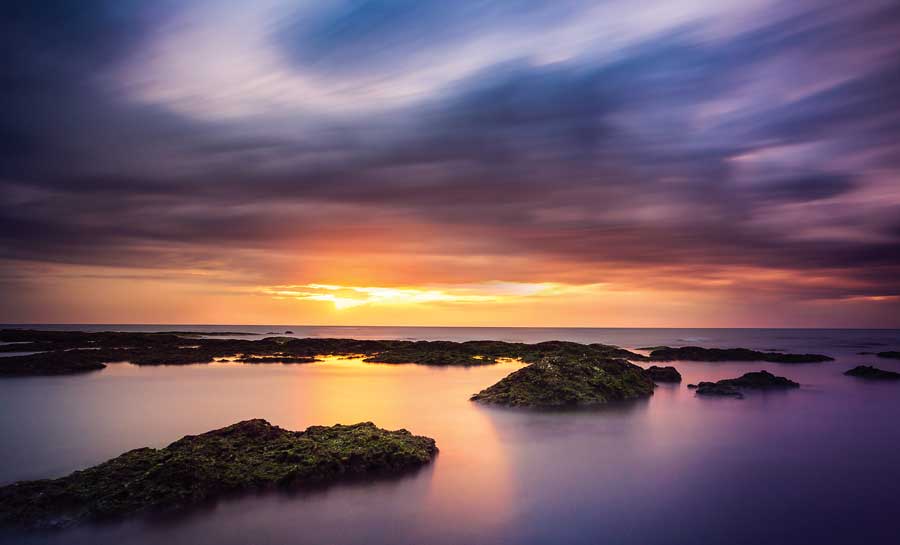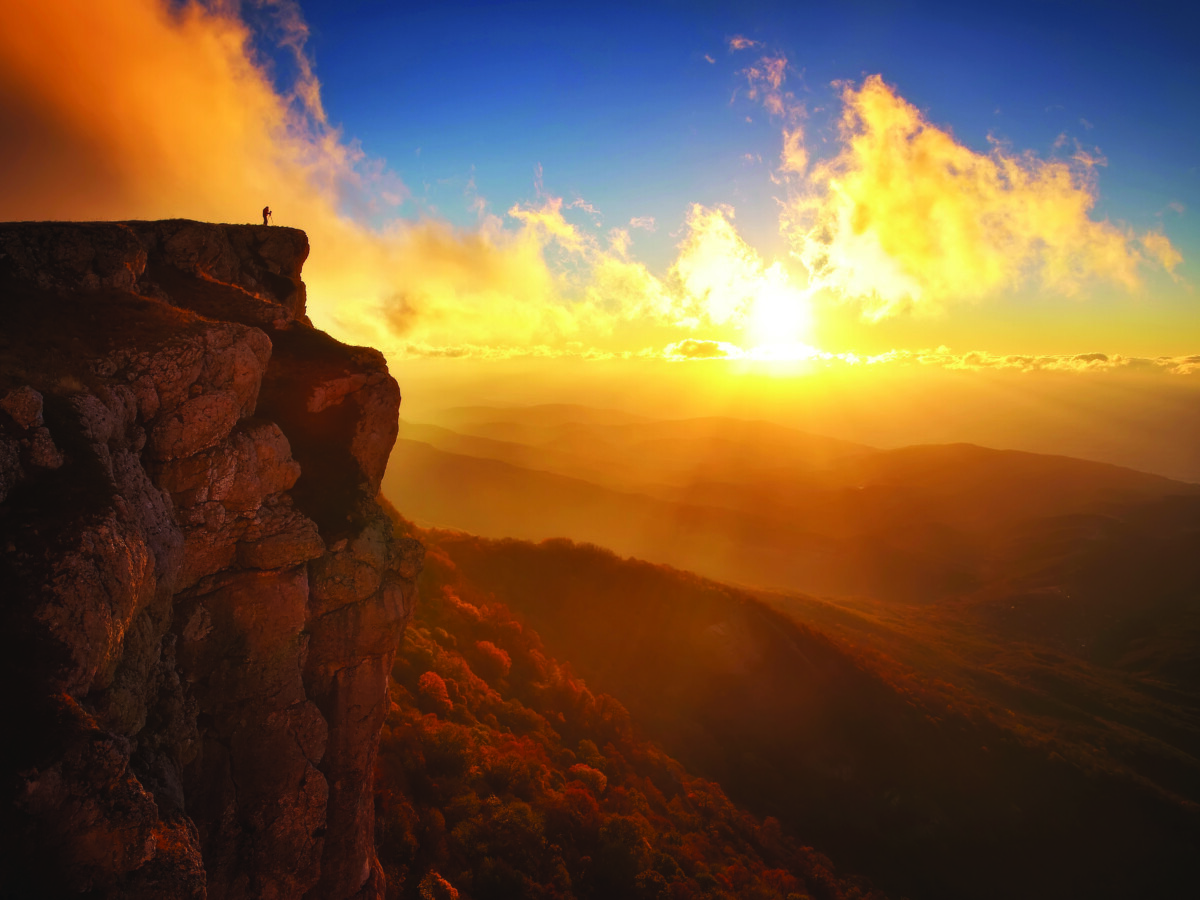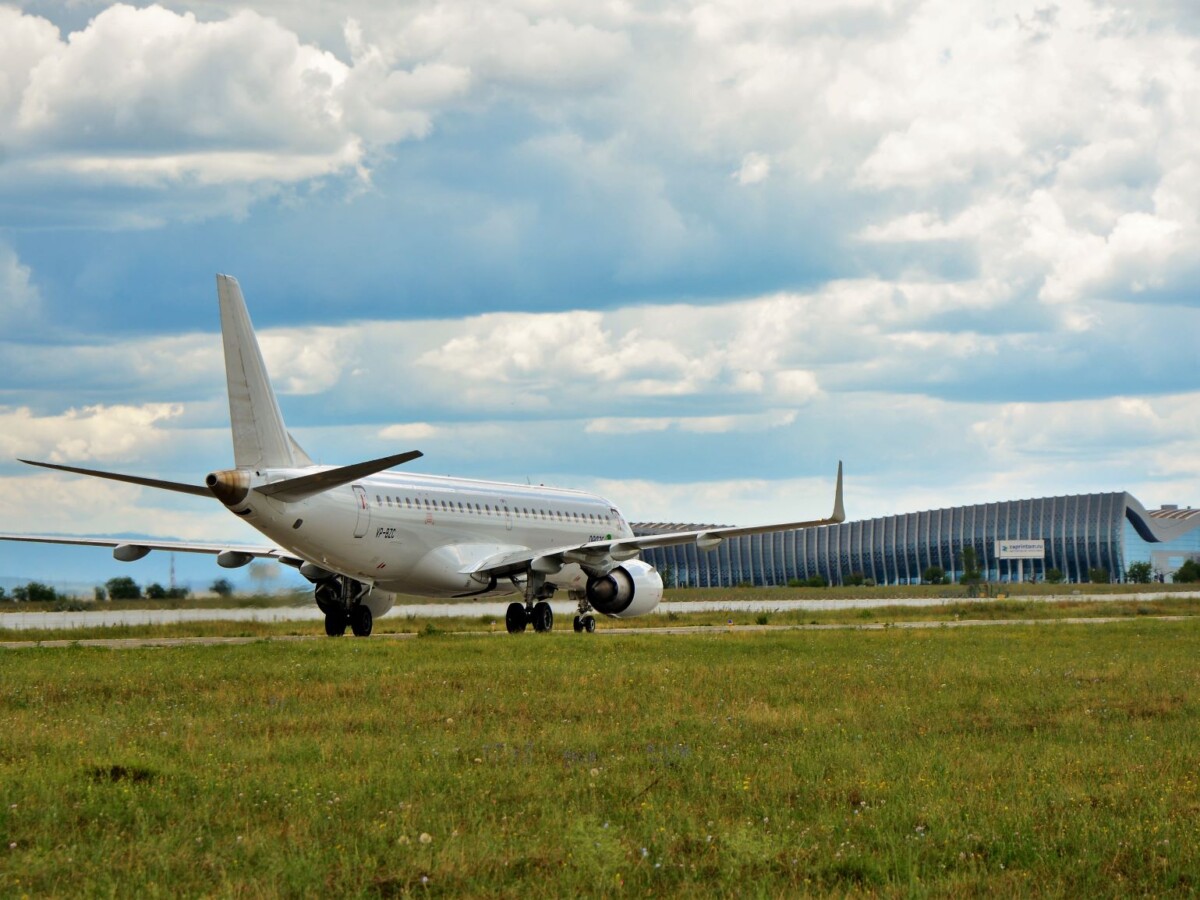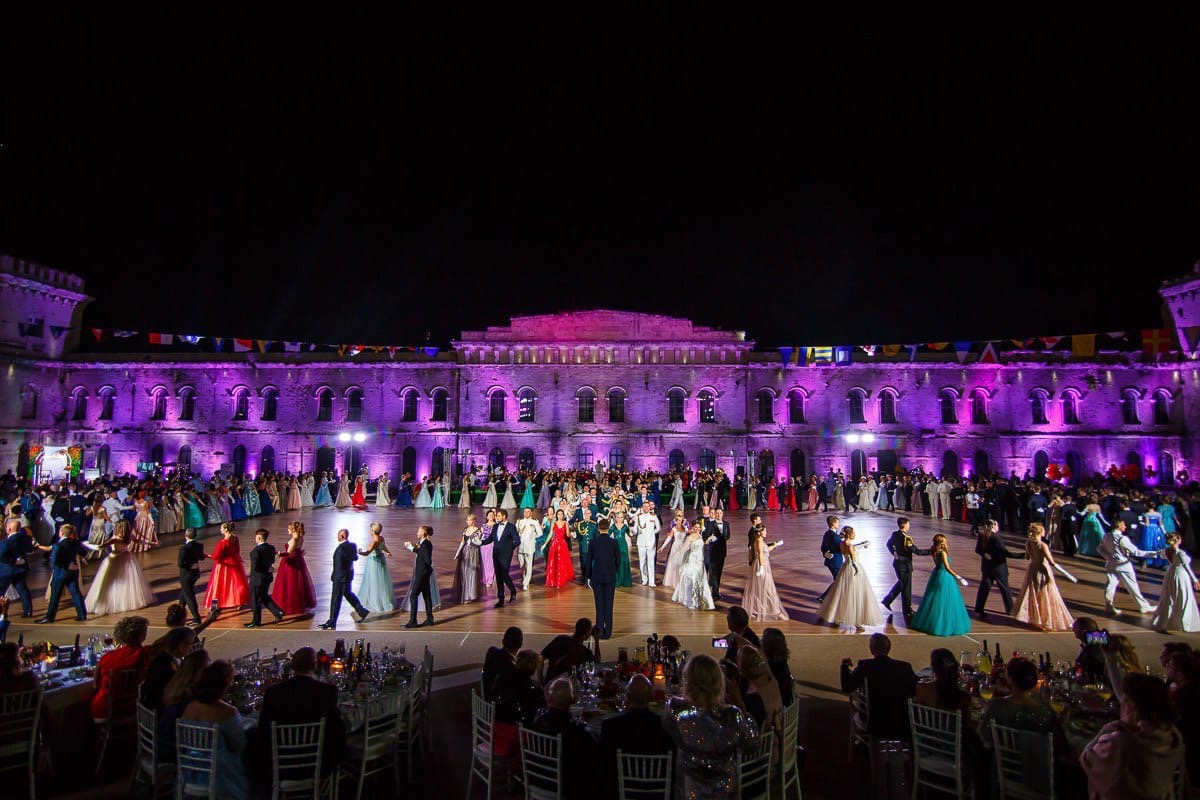Andrei Kondrashov is the journalist of great service, author of documentaries of the highest level, scriptwriter, TV personality and Deputy Director General of All-Russia State Television and Radio Broadcasting Company (the VGTRK — editorial note). We can keep listing his regalia endlessly. But first of all, he is the author of the film “Crimea. The Way Home” for Crimeans. This is the movie, which dotted the I’s and told the world about the events of the “Crimean Spring” in the way the residents of the peninsula couldn’t probably do.
Andrei Kondrashov’s life is inextricably linked to Crimea from 2014 too: here, he takes a rest and gets inspired, works and holds the already known the “Road to Yalta” international music festival. The famous broadcaster shared his view with “The Crimean Magazine” on how the peninsula had changed for 7 years, what song the Russian athletes should sing instead of the anthem, why the film about the “Crimean Spring” received the status of “shocking content” and how foreign singers are changed after participating in the festival.
On the Russian heart strings
CM: Andrei Olegovich, you have become the president of the “Road to Yalta” festival, but last year you opened it via video link and you personally were not there. Did you watch the performance applicants in action? Whom did you give preference?
I caught COVID-19 before the previous festival, but now I’ve received a dose of the Sputnik V vaccine, so to speak, I armed myself and this year I hope to open the “Road to Yalta” festival together with my colleagues in presence. Definitely, I had personal favorites and we together with the art-director of the festival Ernest Mackevicius were looking at the presentations of artists and thinking of what chances applicants had to win. However, I didn’t tell about my favorites out loud — we have got a perfect panel of judges headed by Lev Leshchenko and I wouldn’t like to impose my opinion on such a master. I am not a musician, thus I provided professionals with an opportunity to determine the winners, — and I got to admit they encountered difficulties, as that is not an easy task to choose the best artist from a large number of talented people.
CM: Were there so many people wishing to participate in the event?
We were glad to see any application submitted to the festival. At first glance, it seemed to us we wouldn’t be able to attract so many enthusiastic, talented and absolutely “non-narrow minded” from the perspective of political views people from abroad. Nevertheless, we were wrong. It turned out that there were many individuals, who were far from the mainstream. This is true both for the countries, which we used to call the collective West and all the more in the countries of East. They associate Russia with the great culture, historical achievements and they like to soak up our song-like culture.
CM: The Soviet war song is an ornament of a repertoire of any artist, but does a participation in festival change a world view of competitors in any way? Do they start showing greater interest in our history and culture?
Needless to say, you are totally right. We don’t declare any political goals of the festival. It turns out in itself that diving into our culture, both musicians and their fans from the countries they came from, they start understanding the main fact: Russia isn’t a monster headed by a biggest monster, which threatens to everybody and everything. It’s a great peacemaker and big, peaceful, but powerful country. We can say the same things about our culture — it doesn’t contain aggression, but it can make people get to fall in love in it. For example, Thomas Grazioso, who was the winner of the previous year, participates in the events held by the Rossotrudnichestvo in Rome. He’s already become a kind of a frontman of these events. This year, Thomas will arrive in Crimea again, as being the winner he sat on a jury. The same we can say about Kristel Luri, who was also our beautiful winner, who had been experienced the cruelest pressing initiated by highly liberal media sources of France. She was ostracized by our Ukrainian “partners”, faced with humiliations, reproaches and threats of institution of a criminal investigation… And that involved, very gorgeous and educated woman overcame all the obstacles and she didn’t have a soft spot on herself before her opponents. These are creative people and they only believe in themselves and feelings they face with when they come to Crimea. They can’t be broken down.
“Russia isn’t a monster headed by a biggest monster, which threatens to everybody and everything. It’s a great peacemaker and big, peaceful, but powerful country”
CM: Do you plan to extend the geography of the festival? What novelties will we see?
You know we have already got suggestions of extending the geography of the festival. In particular, the case was about the representation of our eastern partners in a greater degree — among them are India, China, Thailand, Malaysia, Australia and Japan… We were even offered to hold the “Road to Yalta” festival, you will laugh, in Khabarovsk or Vladivostok. Perhaps, it does make sense. If we come to a decision to conduct a festival twice a year (maybe we will do it more often), then the Road to Yalta can be started in the Far East and ended with a final in Crimea.
CM: Would you be so kind to tell us according to what criteria musicians are selected for participating in such a large-scale and serious project?
We select artists taking into consideration professional criteria. Firstly, a person must possess all musician qualities — certainly, he/she must have an ear and voice for music. Secondly… Well, no, it can be called a key parameter — I mean the ability to feel a song and as the saying goes, the ability to play on the Russian heart strings. In fact, our songs are the reflection of the Russian nature. In this sense, the word “Russian” implies something wider than the ethnic origin. This is so, as all the nations living in Russia and within the CIS were raised on the culture, thus they can express their cultural values through a song. If foreign musicians cherish our songs and feel a musical piece to the bottom of their hearts, then it’s impossible to hide this feeling during performing the song.
CM: The Great Patriotic War songs occupy a special place in the song-like culture of our country. Don’t the translation into other languages and style of singing harm their authenticity and sacrality?
Of course, if we treat this like a kind of a show, then we can cross a certain line. Probably, we would never allow the applicant, who performed the “Dark Night” song in the rap style, to take part in the festival. It would be very strange if we allowed, it is not about our cultural values. But for instance, if Thomas Grazioso tried to rearrange the positive “Katyusha” song into the popular Italian style in the spirit of the early San-Remo, so we had decided that the song adaptation had the right to exist. At least, it won’t offend or upset any of our veterans. This is obvious, as the major factor remains — it’s a vigor charge, which is provided by the “Katyusha” song, though it’s performed with the Italian accent. We have got such a careful attitude to all the songs. I can’t help noticing that nobody conducts experiments. Participants realize that there is a sacrality and the case is about the whole historical period, about the great nation and some kind of inviolability is felt in it. It can be compared with drawing of a caricature of a church icon, nobody will understand it.
CM: Well, talking about “Katyusha”. Nowadays, the organizers of the world sport competitions prohibit to perform the national anthem of Russia and variant to sing “Katyusha” didn’t suit org-men either. They opted for the Concerto by Tchaikovskiy. How do you think which song could become an unofficial anthem of our country?
To my mind, Russia shouldn’t have any unstated anthems, except its own one. Due to the circumstances, we can celebrate our victories performing other musical compositions. As for me, I would advise athletes rising to the pedestal to sing “Arise, Great Country”. In this case, we will show them who we are. If they don’t want to listen to “Katyusha”, then they will have to listen to “The Sacred War”. Jokingly, then I think some of Shnur’s songs with all non-bleep bad words will definitely suit the International Olympic Committee.
“The main criteria of selection of applicants of the “Road to Yalta” festival is the ability to feel a song and as the saying goes, the ability to play on the Russian heart strings”
CM: What will you say about the “Dorozhnaya” song?
Is this the song with the words “Go to…”? That’s it in a nutshell, it’s a great idea.
By any means possible
CM: You spent much time in Crimea in 2014 — that was the beginning of our way as the subject of the Russian Federation. What did you expect to see in Crimea after seven years? Have you expectations been satisfied?
You know, mainly my expectations have been satisfied. What would I want? I guess I want all the changes we have seen for seven years would have accomplished for four years. I want things to get faster. I want such a kind of speed for the prosperity of Crimea, which helped us to go into space after finishing of the Great Patriotic War. In fact, the peninsula surprised people with many aspects. In 2014, it was difficult to imagine that the Crimean Bridge would be completed with so an amazing highway, which is exemplary too according to the standards of other regions of Russia. The new airport is magnificent. I see how the system of standards of small business is getting changed little by little and it obtains features that are typical for the most modern metropolises of the world. It isn’t pathetic. I am pleased to note for the development of Yalta and Sevastopol. Everything is right on track, though I would like all of it to get faster.
CM: In 2015, you told you planned to make a movie about the 10th anniversary of integration Crimea into Russia. Do you have any outlines related to that topic?
As a rule, we shoot films very quickly, thus if we see that we are be able to make a movie, which is interesting for our viewers and especially for residents of Crimea, then we will get to work a year before the tenth anniversary. There are three years ahead, so we will see.
CM: Russophobia flourishes in the world and some individuals tend to blame Crimea for the difficult geopolitical situation Russia got itself into. In your opinion, are Crimeans guilty that our country transformed into the “unpleasant neighbor” for the Western partners?
There is a nice folk saying: “If you are ashamed of being Russian, relax then, you are not Russian”. Crimeans must never be ashamed for anything. They showed the colossal will and didn’t change their firm position on Russia, when they lived under the rule of Ukraine. And today, Crimeans are the most real pride of our nation. That’s why any shame is out of question. By the way, I am deeply convinced that if Crimea wasn’t reunited with Russia, there would be millions of other reasons for imposing sanctions against our country. This happened because Russophobia was turned into the policy. The West wants to make us weak and get hook us on the “Bush legs” (term meaning chicken leg quarters — editorial note), then they will like us. When Russia starts walking tall again and recovering its positions, then the West stops liking our country. Currently, the post-truth age has come. To persuade the world that Russia is a foe, our opponents have to turn the whole thing inside out and reverse the positions of black and white. The West shows the tremendous effort to brainwash people. For many decades, everybody was laughing at George Orwell and his “1984” novel, but his creation is becoming a reality before our eyes and some things Orwell couldn’t even imagine. Why do they need all of it? They need arguments to dispute against the truth. However, they don’t have these arguments. And what if they call the truth a lie, then any argument is needless. Otherwise, the war in Donbass could have never been justified. Is it good when peaceful civilians die? Of course, it’s very bad. Nevertheless, when the “Putin’s aggression” is mentioned, then nobody wants to remember about killing of children at that war. We have faced with an unprecedented scale of the information war and with never seen before brainwash machine. But there are people, who are able to overcome this dry cleaning unit aimed at driving out the truth from consciousness. In a point of fact, these people come to our festival.
CM: The YouTube service marked the “Crimea. The Way Home” film with an alert banner. The explanation implies it’s shocking or creepy content. Definitely, we understand it’s just a formal reason. How do you think whom and how exactly this film can shock?
The answer is simple. The initiators of that restriction have been shocked by the truth. Because the stories telling people about the so-called aggression of Russia and so-called annexation of Crimea are formed into a beautiful theory until the moment of knowing about the role of the Crimean people in the reunification with Russia. When a person realizes that the decision was caused by the will of the people, then all the construction planted into his/her head starts to crumble. In this case, our opponents do all their best to prevent somebody’s hesitation about this monstrous lie, which they are used to feed their readers, listeners and citizens every day. In this regard, the “Crimea. The Way Home” film is rather harmful for Western propagandists, as it reveals the lie of their giant printing, broadcasting and networking machine. I understand their motives perfectly well. God forbid, if I were on their side, I would not only restrict the film — I would prohibit it for seeing.
CM: Thank God, you are not on their side. Let’s imagine a situation that you’ve decided to shoot the “Crimea. The Way Home” film at present time, what would you change in your film?
The point of that film is that it was made while the trail was still hot. While the people remembered each day of the key days of the “Crimean Spring” in details and they could express those emotions and motives, which made them take part in the following determining the fate of the peninsula. The value of the film is in the fact that it’s really truthful in emotional and factual sense of the word. If we decide to shoot it now, it will be a completely another movie. Perhaps, we would add a large number of serious geopolitical factors, which affected the situation somehow or other, engage in politics and it would become a wrong practice. There are two main heroes mentioned in the film: they are the people of Crimea and President of Russia, who took the responsibility for taking of life-changing decisions. It must be documented once and for all. I would never agree to remake the film.
“I would advise our athletes rising to the pedestal to sing “Arise, Great Country”. In this case, we will show them who we are”
CM: After finishing of that film, you expressed a desire to shoot an analogic film about Ukraine, but you didn’t success in it. Do you still want to make a movie? Is there any hope that this documentary will emerge once?
We are in anticipation. To make such a film, we must see Donbass comes back to its Motherland. Do I believe in what I’m saying? I do believe. Will the film be produced? It will be. The situation is very difficult. We keep our fingers crossed for our brothers from Donbass.
CM: If there was a need to make a film about Crimea today, how would you call it? What would it tell about?
I would make a movie about people, as they are the most valuable resource. Crimea is not only the nature, it has its own essence and its personal aura. Today, if we make large reportages, then they will be about the development of the peninsula and how it gets better. And people will be mentioned there. Of course, difficulties remain. If there is a decision to make acute social reportages, then they must contain all, including the problems, as the onward progress is impossible without solving of issues. Or it must be history, culture, something eternal. Step by step, Crimea turned into the subject of the federation, which is not so often in the public eye, but it’s the region that can be called the measuring indicator of the health status of Russia. And it’s nice.
CM: It’s true, Crimea is talked about less frequently at the federal level and interest of central media resources in the peninsula subsided a little. Is it for good or bad for us?
The public interest in Crimea isn’t subsided, may be media outlets are not interested in it, and it’s splendid. You know it well, if we, journalists, start interesting in some region — it means there is something out of the common happening within that place. As for me, I don’t want such a scenario would occur in the peninsula. Let it appear in the broadcasting only with positive occasions. I say it again, media space calm related to Crimea means that there are no disruptions, disasters, revolutions and that’s great.
Positive ideas
CM: There are a lot of documentaries, each of which became a kind of a bestseller, in your portfolio. Do you plan to create new ones? Will Crimea be mentioned there?
We have got plans, but traditionally we don’t reveal them. Let them come into fruition, after that we will together see such film on TV.
CM: Then, would you be so kind to tell what inspires you for making of author films? If everything is clear about historical dates, but you produced the movie devoted to the water problem in 2016, it seems to us you predicted the forthcoming drought on the South of Russia.
As a rule, good ideas are very simple ones. And everything simple and colorless at first glance lies in the way, you just need to see and pick it up. It’s impossible to do without a team and brainstorm. The water shortage is the problem of the present time and coming decades. Russia will stay a foe for a huge number of countries too because of the status of the most water supplied country of the planet. Unevenly, but we will have to solve many water problems within the Caucasian and Southern parts of the country.
CM: What other simple ideas have you already seen in your way?
For instance, I have paid attention to the enormous cyber war threat, wherein Russia can be involved. Should we produce films about this topic? Certainly, we should issue some warnings. However, it’s very difficult to make a movie about it, as it’s difficult to display a cybercrime. It’s much easier to show a lack of water.
CM: The topic is very interesting and we will be waiting for the film
Sure. The major fact is that it’s a war of the future, which we will definitely have to participate in and we must get prepared, as well as spend our energy and resources on it already today.
CM: Besides of documentary filmmaking, you have a passion for photography. If you wanted take a snapshot representing Crimea, what place would you like to take a photo of?
To take a snapshot impersonating Crimea, you need to take 7 thousand of photos. After all, Crimea is totally beautiful: both steppe and Eastern parts of the peninsula, all Kerch, Cis-Azov region, Western part of Crimea — Yevpatoriya, Saki, Tarkhankut are magnificent. Obviously, the same can be told about the Southern Shore of Crimea. All of these various and so completely different from each other corners of Crimea, thus it’s impossible to take a certain snapshot. At this point, it can be compared with a situation, if someone asks to take a photo, which will represent the whole Russia. It’s a very easy task for people, whose heads are full of clichés. They will take a photo of a bear with balalaika and bottle of vodka for you.
CM: But you have a collection of snapshots taken in Crimea?
Certainly, it is always updated. Even during the pandemic, we found opportunities to arrive in Crimea for weekends to go for a walk in Crimea and we have a lot of photos.
CM: Last year, the rest in the peninsula became a real trend due to the closed borders. What place did you visit on your vacations?
Indeed, I traveled to Crimea. Last August, together with my family I had wonderful vacations there. I also mixed pleasure with business — there was a period of preparation of our festival, which had to be rescheduled from May to September because of the lockdown.
CM: Will you come to Crimea this year?
Absolutely. There’re no two ways about it.





